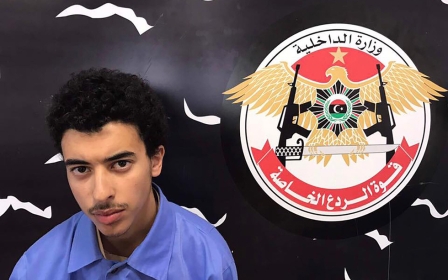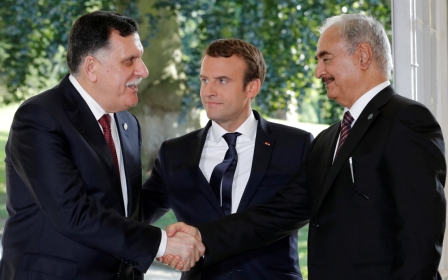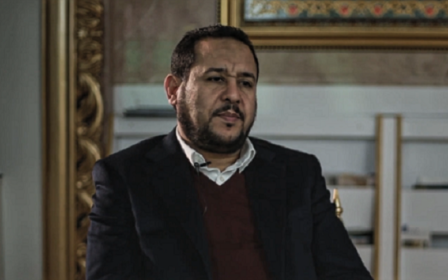Libya's largest oil field attacked by armed group

An armed group tried to attack Libya's El Sharara oil field, the country's biggest, but there was no impact on production from the incident, a field engineer said on Monday.
Gunmen were stopped overnight outside the field in Libya's desert southwest while trying to steal several vehicles, the engineer said, speaking on condition he was not further identified. No more details were immediately available.
Oil output in OPEC member Libya has been repeatedly disrupted by factional conflict and blockades since the 2011 uprising that toppled veteran dictator Muammar Gaddafi.
El Sharara, which produces around 300,000 barrels day, was seized by state guards and tribesmen in December to press financial demands before reopening in March.
The field, operated by the National Oil Corporation (NOC) and foreign partners, has been pumping oil only intermittently due to blockades mostly by armed groups and other incidents.
New MEE newsletter: Jerusalem Dispatch
Sign up to get the latest insights and analysis on Israel-Palestine, alongside Turkey Unpacked and other MEE newsletters
It is in a region held by forces loyal to eastern military commander Khalifa Haftar, allied to a parallel government based in the eastern city of Benghazi. Haftar's forces are now concentrated in the northwest to try to take the capital Tripoli held by the internationally recognised government.
Tripoli fighting
The offensive by Haftar's Libyan National Army (LNA) has intensified a factional power struggle that has fractured Libya since Gaddafi's demise.
Haftar's assault on Tripoli has stalled on the capital's stoutly defended southern outskirts. The LNA carried out an air raid overnight on at least one target south of Tripoli, residents said, though it was less intense than one on Saturday night.
The three-week battle has killed 345 people, 22 of them civilians, a World Health Organisation official said on Monday. A Tripoli hospital was evacuated after shelling shattered some windows, he added in a tweet.
Haftar enjoys backing and arms supplies from the United Arab Emirates and Egypt, UN officials say, to build him up as bastion for stability and fight militants. His opponents see him as a budding new autocrat in Gaddafi's mould.
Prime Minister Fayez al-Serraj of the UN-backed Government of National Accord (GNA) in Tripoli is supported by Italy, the former colonial power which has oil assets in Libya, and Turkey - two among the few countries that have kept their embassies open in the Libyan capital.
A senior UN official warned on Sunday that fighting for control of Tripoli had already displaced tens of thousands of people and threatened to bring a further worsening of humanitarian conditions.
"As long as the situation continues, even if it just stagnates and continues like this, we can expect to see a continuing deterioration," UN humanitarian coordinator for Libya Maria do Valle Ribeiro, who is also deputy UN envoy to Libya, told the AFP news agency.
"When we see the use of air power, the indiscriminate shelling of densely populated areas, it is very difficult to be optimistic."
She was speaking after air raids by the LNA on Tripoli on Saturday killed four people and wounded 20 others, according to the GNA.
"We continue to call for a respect of civilians. We continue to call for humanitarian pauses and most of all we continue to hope that the situation can return to a more peaceful settlement of the crisis," she said.
The UN official added that fighting had already forced 41,000 people to flee combat areas around Tripoli while many remain trapped and in need of humanitarian assistance.
Middle East Eye delivers independent and unrivalled coverage and analysis of the Middle East, North Africa and beyond. To learn more about republishing this content and the associated fees, please fill out this form. More about MEE can be found here.





